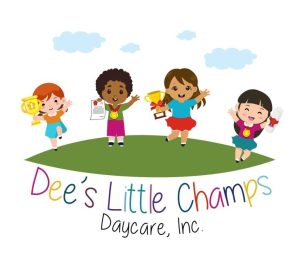Daycare plays a crucial role in preparing children for the transition to kindergarten. Beyond basic care, daycare centers offer a structured environment where children are introduced to early learning concepts, social skills, and routines that are essential for school readiness. Here’s how daycare can help prepare your child for kindergarten:
1. Structured Routines and Time Management
One of the primary ways daycare prepares children for kindergarten is by introducing them to structured routines. From morning drop-off to scheduled activities, nap times, and meals, children in daycare learn to follow a daily schedule. This helps them become accustomed to the structure they will encounter in a kindergarten classroom.
By following a routine, children learn time management skills. They understand when it’s time to play, eat, and rest, which can ease the transition to the more formal schedules found in schools. The ability to follow a routine also instills discipline and helps children manage their time more effectively.
2. Introduction to Early Learning Concepts
Daycare centers often provide a curriculum that introduces basic literacy, math, and problem-solving concepts. Through age-appropriate activities like counting games, storytelling, and letter recognition, children start building foundational academic skills. These early exposures to numbers, letters, and words make kindergarten concepts more familiar and easier to grasp.
In addition, many daycares emphasize hands-on learning through play. Activities like sorting objects by color or shape, solving puzzles, and engaging in pretend play help children develop critical thinking and cognitive skills that will be essential in kindergarten.
3. Social and Emotional Development
One of the most significant benefits of daycare is the opportunity for social interaction. Children learn to work with others, share, and communicate in group settings. Daycare helps them build the social skills necessary to succeed in kindergarten, where teamwork, cooperation, and communication are vital.
Children in daycare are also taught emotional regulation, which is essential for navigating the emotional challenges of school. They learn to express their feelings, handle frustration, and develop empathy through interactions with peers and caregivers. These emotional intelligence skills are crucial for a smooth transition to the social dynamics of a kindergarten classroom.
4. Following Instructions and Building Independence
In daycare, children are taught to follow instructions from caregivers and teachers. Whether it’s during group activities or meal times, they practice listening skills and learn to follow multi-step directions. This is a critical skill for kindergarten, where children are expected to follow the teacher’s instructions and complete tasks independently.
Additionally, daycare helps children develop a sense of independence. They learn to manage personal tasks like putting away toys, washing their hands, or getting dressed. These self-help skills build confidence and prepare them to handle responsibilities in a kindergarten setting.
5. Developing Attention and Focus
Daycare programs include structured activities that encourage children to focus and pay attention for extended periods. Whether it’s during storytime or arts and crafts, children learn to concentrate on tasks, listen actively, and participate in group activities. This ability to focus is essential in kindergarten, where children will be expected to sit through lessons, follow along with instructions, and complete assignments.
Daycare also encourages children to ask questions, think critically, and explore new ideas. This curiosity and eagerness to learn will serve them well as they enter a more academically driven environment.
6. Building Confidence and Adaptability
Daycare provides children with a supportive environment where they can take risks, try new things, and develop confidence in their abilities. Whether it’s solving a puzzle, participating in a group game, or leading an activity, children are given opportunities to succeed and build self-esteem.
In addition, daycare helps children develop adaptability. They learn to navigate changes in routines, interact with new caregivers or peers, and handle transitions between activities. This flexibility will help them adjust to the new experiences and challenges they will face in kindergarten.
7. Fine and Gross Motor Skill Development
Physical development is another important aspect of daycare that prepares children for kindergarten. Daycare programs include activities that promote both fine motor skills (such as cutting with scissors, drawing, or manipulating small objects) and gross motor skills (such as running, jumping, and climbing). These skills are crucial for tasks in kindergarten, like writing, using classroom tools, and participating in physical education.
Daycare centers often have designated outdoor playtime or gym activities that encourage children to be active, helping them build the coordination and physical strength needed for school.
8. Exposure to Group Learning Environments
Finally, daycare introduces children to group learning environments similar to what they will encounter in kindergarten. They learn to participate in group discussions, wait their turn to speak, and follow group rules. These experiences help children become comfortable in a classroom setting, where they will need to work collaboratively with classmates and respect group dynamics.
Daycare also gives children the opportunity to develop leadership skills and take on roles within a group, whether it’s being the line leader or helping with an activity. These leadership opportunities build confidence and prepare them to engage actively in a kindergarten classroom.
Conclusion
Daycare provides an invaluable stepping stone for children transitioning to kindergarten. By offering a structured environment where children develop social, emotional, and cognitive skills, daycare sets the stage for academic and personal success. Through exposure to early learning concepts, routines, and group settings, children in daycare build the confidence, independence, and adaptability needed to thrive in kindergarten. For parents, knowing that their child is prepared both academically and socially can ease the anxiety of the transition to formal schooling.

